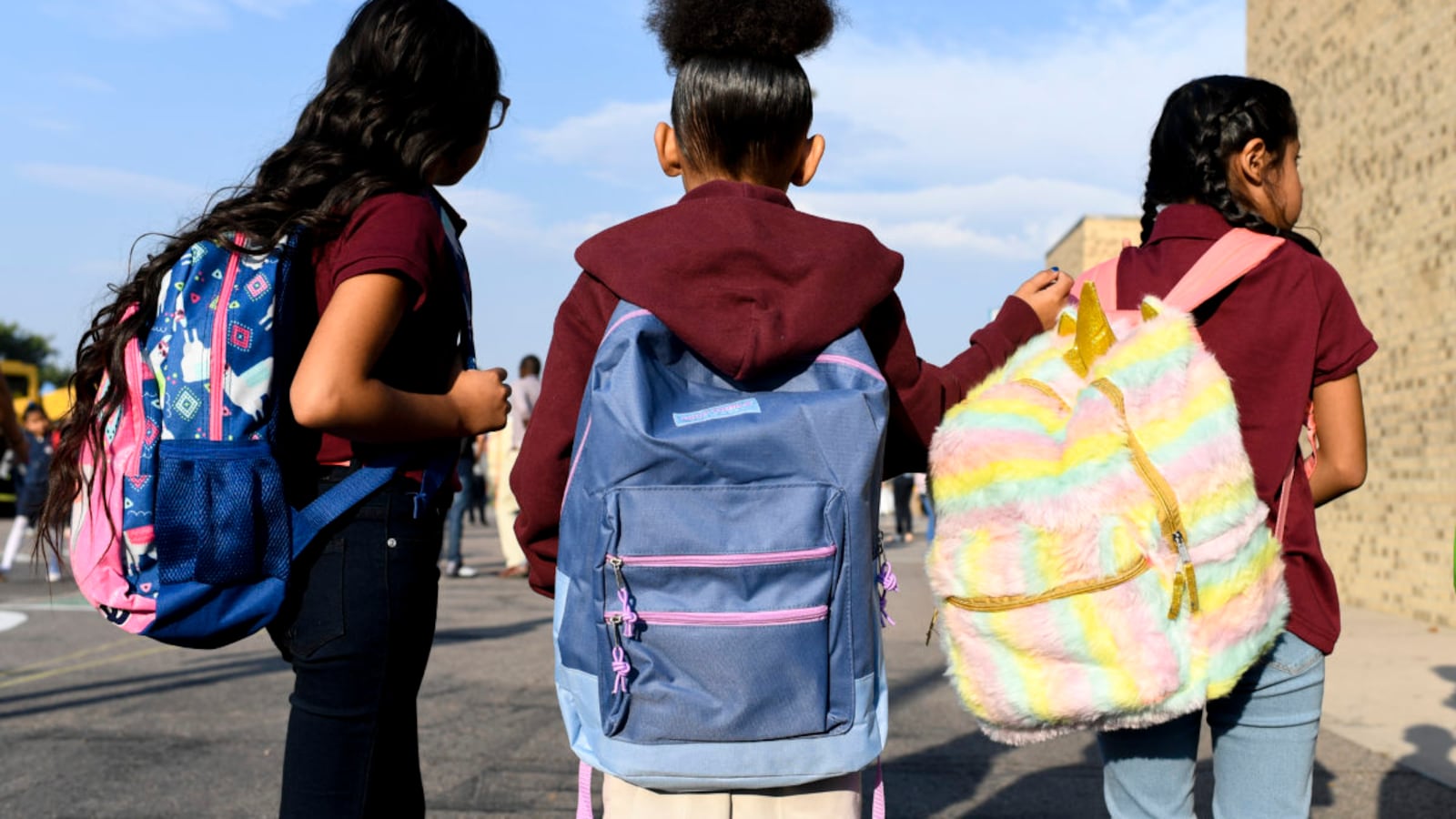A student who gets suspended does worse in school. That connection worries many policymakers, and it’s driven a wave of changes meant to cut down on the number of students sent out of their school buildings for breaking rules.
But there’s been little reliable evidence that suspensions are the true cause of poor test scores or dismal graduation rates. Perhaps students who get suspended would have had academic trouble regardless. Perhaps suspensions themselves set students on a negative trajectory. Maybe it’s a combination of the two.
It’s a timely question, as Education Secretary Betsy DeVos is still weighing whether to rescind an Obama-era directive on school discipline. Designed to reduce disparities, that guidance argues that suspensions generally hurt students.
Now, we’re closer to some answers.
Three of four recent studies on the topic provide some of the strongest evidence yet that suspensions do in fact harm students’ academic performance. But they also suggest that the consequences of a suspension, at least as measured by test scores, are less severe than previously thought.
Researchers have “been very good at documenting disparities, period; I think we are less sure of the causes and the consequences,” said Constance Lindsay, a researcher at the Urban Institute who has studied school discipline. “These new studies are definitely moving the needle forward.”
Those four studies compare the same students before and after a suspension — a different method than most past research. Older research has typically contrasted suspended students to similar students who aren’t suspended, an approach with significant limitations.
To be clear, comparing students to themselves over time isn’t a perfect method, either. If a student experiences a traumatic event between third and fourth grade, for instance, they might be more likely to be suspended and also less likely to do well on a state test in fourth grade. This method can’t fully account for that.
This is also just one piece of the discipline debate. Other important issues include whether well-documented disparities in who gets suspended are due to discrimination, how suspensions affect non-suspended students, and whether alternative discipline approaches are effective.
So what have these four new studies found? We’ll walk through them one by one.
In Philadelphia, suspensions are linked to lower test scores
One study, published last week, focuses on third through 12th-graders in Philadelphia district schools from the 2011-12 school year to 2013-14.
It shows that students’ test scores are lower in years that they were suspended. The results suggest students’ chances of scoring proficient on the state math exam fall by about 2 percentage points if they were suspended. And the more days a student was suspended, the more their test scores fell.
Researchers Johanna Lacoe and Matthew Steinberg called these effects “educationally significant” but also “much more modest that what is found in existing research.”
There was no effect on test scores in the year following a suspension or on absences the month after.
The researchers also try a completely different method to confirm their results: using a policy change in Philadelphia to compare suspended students to students who would have otherwise been suspended, but were not. They find, again, that suspensions cause small declines in achievement.
In a California suburb, multiple suspensions depress test scores
This paper, published in May, looks at seventh through 11th-graders in an anonymous suburban California school district between the 2009-10 and 2011-12 school years.
A single suspension didn’t have clear effects. But it shows that being suspended out of school more than once led to substantial drops in test scores. (Students suspended more than once, though, accounted for only a very small fraction of those in the sample.)
Students who received multiple in-school suspensions saw their scores fall in English but not math.
Like the prior study, this one compares the same students before and after they were suspended; it is also able to track students more closely by looking at test scores quarter by quarter.
In Arkansas, suspensions don’t hurt — and may help — students one year later
This 2017 analysis, which has not been formally peer-reviewed, focuses on all K-12 public schools in Arkansas from the 2008-09 school year to 2013-14.
Suspensions had either no effect or a small positive effect on students’ test scores in the year after they were suspended. Those gains grew the more days students were suspended, and the effects were larger for students of color.
The positive effects seen in this paper were very small — generally smaller that the negative effects shown in the Philadelphia study.
The big limitation is that it looks at the year after a suspension takes place, when you would expect the academic consequences to be felt in the year of the suspension. Other researchers have focused on this point when raising questions about this study’s approach.
Suspensions lower pass rates in New York City
This peer-reviewed study from June looks at a group of New York City high school students, starting in 2005 when they are ninth graders and tracking them through 2011.
Suspensions seemed to have modest, but notable, consequences, as Chalkbeat previously reported.
Suspended students were 3 and 4 percentage points less likely to pass math class and English class, respectively, compared to semesters when those same students weren’t suspended; they were also absent one more day in those semesters.


